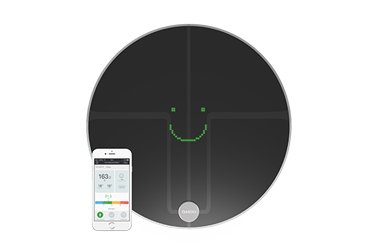Being overweight affects your heart health. It makes this vital organ exert more force to pump the blood. It is also the cause of other health problems such as diabetes and breathing difficulties. Since obesity is a problem of great importance for the global population, we have interviewed doctors and specialists to explain the negative effects of being overweight on your heart health, what are the challenges to reducing weight, and the connection between cholesterol and heart disease.
Negative effects of being overweight on your heart health
By Dr. Chris Price, Board-Certified Cardiologist.
Excess weight affects your heart health in many ways. It causes changes in your body’s metabolism, which is counterproductive to maintaining your health. Fat cells have one of the largest blood supplies per unit weight in the body. As these supplies increase, so does the demand on your heart. To keep up with this extra need for blood supply, the body will increase the constriction of the arteries, which causes high blood pressure.
As weight increases, another metabolic change occurs in insulin resistance or the beginnings of Type II diabetes. People with diabetes are considered to have heart disease or blockages of the heart arteries. Another effect of weight gain is the development of sleep apnea. This is where people tend to snore more at night and, at times, stop breathing while they are sleeping. This causes the body to increase the constriction of blood vessels and cause high blood pressure, in addition to exposing the entire body to periods of low blood oxygen levels. This can cause arrhythmias such as atrial fibrillation or an irregular heartbeat, which increases the risk of stroke and congestive heart failure.
The good news is that all of this can be reversed with weight loss.
What are the most common obstacles to weight loss?
One of the biggest obstacles to weight loss is the thought that it is expensive to eat healthily. While this can be true in the short term, the cost of medications, supplies, and doctor visits for treatment are more expensive in the long run.
1. Motivation
Most people have tried “this diet” or “that diet” and lost some weight only to put it back on, or gain even more weight back. Also, there is always the latest fad diet that does not always work for every individual and can also be unhealthy for your heart.
2. Thinking you need to go to a gym and work out
This can be expensive and intimidating but is not the only way to lose weight.
3. Time
Life is busy and the first thing that most people do is stop taking care of themselves by not eating healthy (fast food to save time or comfort food to make them feel better) or taking mental health breaks
Dr. Hodges’ top 3 recommendations to reduce weight
By Dr. Charlotte Hodges, MD. Board Certified Advanced Laparoscopic General and Bariatric Surgeon, Medical Director at the My New Beginning Bariatric Center at City Hospital at White Rock in Dallas, Texas.
1. Move
The American Heart Association recommends 150 minutes of activity a week. Just walking one mile a day can burn up to 100 calories! This is why the goal of getting at least 10,000 steps a day can help you with your weight loss goals.
Patients think that they need to do a boot camp or crazy fitness courses to have an impact. However, you need to start at your baseline. If you haven’t worked out in 5 years, how could you expect to make it through an obstacle course? Set yourself up for success! Have a weekly goal of walking a 1/4 mile at least 2-3 times a week. This way you can build up your endurance with a low-impact exercise regimen. It is not how hard you work out, but how consistent you are with your workouts.
2. Log your food
Research shows that people who routinely keep an account of their daily intake have a much better chance at reaching their weight loss goals and keeping it off. Your weight is tied to your metabolic rate (BMR). You can calculate your BMR, or your daily needs, with a simple calculator available in hospitals and online.
Keeping your calories within 300 or so of your BMR will help you maintain your weight. If you want to lose weight, you need to be in a calorie deficit either through diet or exercise (300-500 calories below your BMR daily). Most people overestimate how much they burn in exercise and underestimate how much they eat daily. This is why logging your food consistently can help.
3. Destress
Stress is a huge contributor to obesity. Stress has a detrimental effect on your metabolism and affects your mental health and behavior as well. Oftentimes, we will resort to mindless eating or reaching for a high carbohydrate snack when we are feeling stressed or down. Working on a way to be more mindful of how and why you eat can help you on your weight loss journey. Some ways to destress include: taking a long walk, stepping away from your desk for at least 5-8 minutes every hour, or even turning off your cell phone for short periods.
Is cholesterol linked to heart disease?
By Dr. Carrie Lam Member of the Fellowship in Anti-Aging, Metabolic and Functional Medicine and the American Board of Anti-Aging / Regenerative Medicine.
Our body was never designed to take in a large quantity of glucose from the breakdown of pasta, bread, french fries, cookies, and soda over several years. It simply cannot process those foods properly without residual damaging effects. Lacking the specific nutrients to properly try out the repair process, the body puts its emergency repair team into action. It instructs the liver to produce cholesterol (a sticky and waxy substance) as a surrogate in its attempt to repair damaged arteries by covering the damaged areas. The cholesterol that is produced travels from the liver to the damaged areas as LDL (bad) cholesterol. It is further converted into oxidized LDL cholesterol and sets off a cascading inflammatory reaction. The accumulation of oxidized LDL cholesterol eventually leads to a thrombus formation, the reduction of nitric oxide synthesis, high blood pressure, and ultimately the blockage of blood vessels can result in heart attacks or stroke.
Being overweight affects more than your heart
Being aware of your weight and what you eat can have a huge impact on your heart health. The doctors’ input has shown that being overweight affects your entire health, not just your heart. However, by making small changes in your lifestyle, especially in your diet, you will be taking an important step towards a healthier lifestyle.
You can also download the full guide here.




